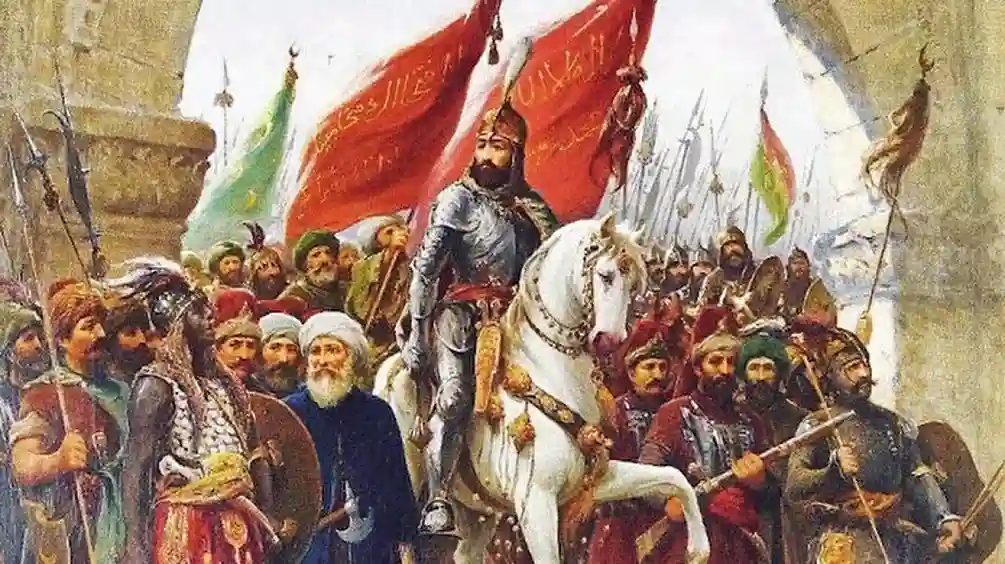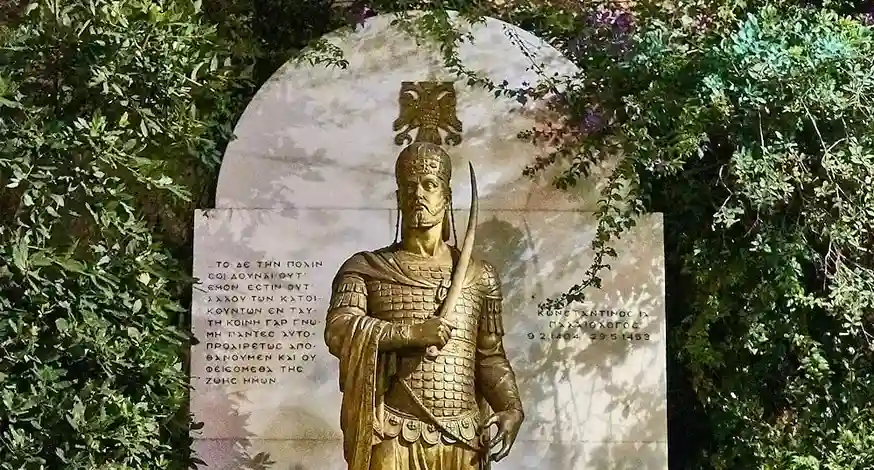Who was the Byzantine Emperor when Istanbul was conquered? ; The conquest of Istanbul is considered one of the most important events in world history. This event, which took place on May 29, 1453, ended the Middle Ages, started the New Age, and symbolized the rise of the Ottoman Empire. So, who was the Byzantine Emperor when Istanbul was conquered? In this article, we will provide detailed information about the Byzantine Emperor Constantine XI during the conquest of Istanbul. We will examine who Constantine XI was, the situation of the Byzantine Empire during his time, and how he resisted the conquest of Istanbul. In addition, we will get to know the person behind this great event more closely by focusing on the life of Constantine XI and the imperial period.
Life of Constantine XI
Who was the Byzantine Emperor when Constantinople was conquered?; When Constantinople was conquered, the Byzantine Emperor was Constantine XI. Constantine XI was born on February 8, 1405 and ascended to the throne as the Byzantine Emperor in 1449. Constantine’s reign coincided with the last years of the Byzantine Empire. One of eight children of his father Manuel II and his mother Helena Dragaš, Constantine had a Serbian nobility thanks to his mother, who was a princess by birth.
His Ascension to the Throne and His Early Years
Before ascending to the throne, Constantine served as Despot of the Morea. During this period, he made great efforts to defend and expand Byzantine territories in the Peloponnese. He ascended to the throne in 1449 after the death of his elder brother, John VIII, who became Byzantine Emperor. Constantine’s reign took place at a time when the Byzantine Empire was facing serious internal and external threats.
The Situation of the Byzantine Empire
Who was the Byzantine Emperor when Constantinople was conquered?; When Constantinople was conquered, the Byzantine Emperor was Constantine XI. During Constantine’s reign, the Byzantine Empire was in a serious weakening process. The Byzantine Empire had suffered territorial losses since the 11th century and had weakened militarily, economically and politically. The continuous expansion of the Ottoman Empire and the failure of Western Europe to respond to requests for assistance made the situation of Byzantium even more difficult. Constantine made great efforts to improve the difficult situation of the Byzantine Empire, but the difficulties he faced were immense.
Preparations for the Defense of Istanbul
Who was the Byzantine Emperor when Constantinople was conquered?; When Constantinople was conquered, the Byzantine Emperor was Constantine XI. Constantine realized the threat posed by the Ottoman Empire to Istanbul and made various preparations to defend the city. He strengthened the city’s walls, increased the number of soldiers, and requested help from Western Europe. However, Byzantium’s military and economic resources were limited, and the help that came from Western Europe was insufficient.
Conquest of Istanbul
When Constantinople was conquered, the Byzantine Emperor was Constantine XI. The conquest of Constantinople was carried out by Sultan Mehmed II of the Ottoman Empire. The siege, which began on April 6, 1453, ended on May 29, 1453. The Ottoman army consisted of approximately 100,000 soldiers and had a strong artillery unit. The Byzantine Empire had approximately 7,000 soldiers, most of whom were mercenaries.
The Last War of Constantine XI
When Constantinople was conquered, the Byzantine Emperor was Constantine XI. Constantine personally led the defense of Constantinople and encouraged his soldiers. He showed his determination to defend the city until the last moment. Even in the thick of the siege, Constantine did not lose his courage and did his best to defend the Byzantine people.
Death of Constantine XI
Constantine XI made a last stand and died fighting after the Ottoman soldiers entered the city on May 29, 1453. His death symbolized the end of the Byzantine Empire and marked the end of the Middle Ages and the beginning of the New Age.

Results of the Conquest of Istanbul
Who was the Byzantine Emperor when Istanbul was conquered? When Istanbul was conquered, the Byzantine Emperor was Constantine XI. The conquest of Istanbul had a profound effect on world history. The Byzantine Empire ended and the Ottoman Empire became a great power. Istanbul became the capital of the Ottoman Empire and became an important cultural, economic and political center.
The conquest of Istanbul is one of the turning points in world history. The answer to the question of who was the Byzantine Emperor when Istanbul was conquered is Constantine XI. The life of Constantine XI and his role in the defense of Istanbul show the courage and determination of the man behind this great event. Who was the Byzantine Emperor when Istanbul was conquered? The Byzantine Emperor when Istanbul was conquered was Constantine XI, and his courage will be remembered throughout history.
Constantine XI struggled with difficult conditions throughout the imperial period and lived through the last years of the Byzantine Empire. The resistance and determination he showed during the defense of Istanbul have engraved his name in history. The conquest of Istanbul brought the end of the Byzantine Empire and symbolized the rise of the Ottoman Empire. Istanbul became the capital of the Ottoman Empire and an important center in cultural, economic and political terms. This great change changed the course of world history.
When Constantinople was conquered, the Byzantine Emperor was Constantine XI. Constantine’s courage and leadership played a major role in the resistance of the Byzantine people. He personally led the defense of the city, gave morale to his soldiers, and fought until the end. His death symbolizes the end of an era and the beginning of a new one.
After the conquest of Istanbul, the Ottoman Empire grew rapidly and became stronger. The strategic location of Istanbul provided great advantages to the Ottoman Empire. This city, where trade routes intersected, became the economic and cultural center of the empire. Ottoman architecture, art and science showed great development after the conquest of Istanbul.
This historical event caused the Middle Ages to end and the New Age to begin. It led to the acceleration of the Renaissance movements in Western Europe and the increase of scientific developments. The conquest of Istanbul is considered one of the turning points in world history, an event that changed the course of history.
In conclusion, the answer to the question of who was the Byzantine Emperor when Constantinople was conquered is Constantine XI. His courage, leadership and determination symbolize the struggle of the Byzantine Empire in its final years. The conquest of Constantinople symbolizes the rise of the Ottoman Empire and the great changes in world history. The Byzantine Emperor when Constantinople was conquered was Constantine XI and his legacy continues to live on in the pages of history. The conquest of Constantinople will always remind the name of Constantine XI as an unforgettable event throughout history.
Conclusion:
The fall of Constantinople and the death of Emperor Constantine XI marked the end of the Byzantine Empire, leaving an indelible mark on history. Constantine XI, the last emperor, became a symbol of courage and resilience, fighting to the very end to defend his empire. His tragic fate and the ultimate defeat of his forces solidified his place in history as a martyr for the Christian world, even as the Ottomans celebrated their historic victory under Sultan Mehmed II.
In conclusion, the conquest of Constantinople not only ended Byzantine rule but also ushered in a new era for the Ottoman Empire, making it a dominant force in both the east and west. The legacy of Constantine XI and the fall of the Byzantine Empire continue to captivate historians and enthusiasts of medieval history. Understanding the role of this last emperor provides valuable insights into one of history’s most momentous events and the transformation of power that shaped the future of Europe and the Near East.
